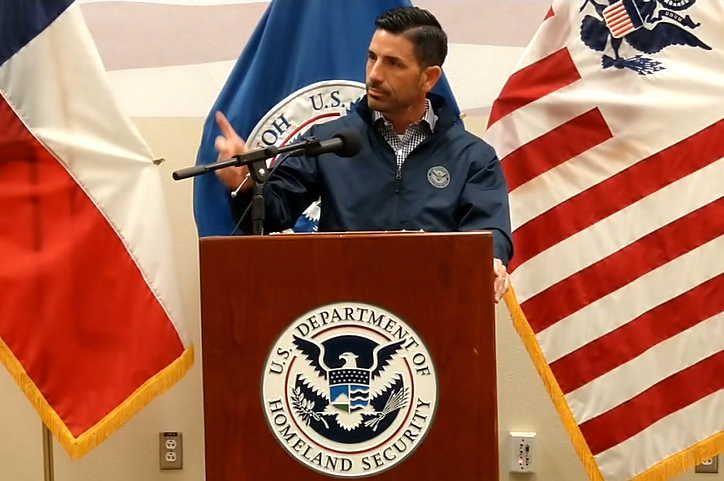EL PASO, Texas (Border Report) — The head of the Department of Homeland Security on Wednesday deflected criticism about the Migrant Protection Protocols (MPP) program and said the program is critical in order for the United States to maintain control of the Southwest border.
Under MPP, the federal government has sent tens of thousands of Central Americans and other foreigners to wait out in Mexico for the resolution of their cases in the United States. New claimants are placed on a waiting list — a process called “metering” — and are likewise made to fend for themselves in Mexican border cities where advocates say they’re being preyed upon by criminals.
But DHS Acting Secretary Chad Wolf says those migrants are getting due process.
“Access to counsel and due process is critical in all of these programs. (However), I think what we’ve seen over time is they’ve been used as a stalling tactic or a way to get into the interior of the country,” Wolf said. “So with a lot of these programs, MPP and the like, we want to make sure they have access to counsel, but that we do it as soon as possible in the process.”

During his visit to El Paso, Wolf stressed that doing away with MPP would set back the federal government’s efforts to rein in the migrant crisis, which taxed law-enforcement resources and led to overcrowding and claims of abuse at detention centers as recently as May — a month in which more than 132,000 migrants showed up at the Southwest border.
But earlier this week, U.S. Rep. Veronica Escobar, D-Texas, tweeted the tag #defundMPP and testified before the House Committee on Homeland Security about the pain and suffering the program has inflicted on migrants seeking asylum.
“I know full well about MPP because I represent El Paso. Our lawyers, our advocates, our community members have had to bear witness to what is happening at the hands of the American government,” Escobar said. “What we have seen (is) a new eco-system of criminal activity created by this policy on the other side of our ports of entry. … We’ve had our lawyers tell us about clients who’ve been raped multiple times, tell us about clients who have disappeared altogether.”
She said the policy is putting vulnerable migrants who’re already in the asylum-petition process in the hands of Mexican criminal organizations that extort and kidnap them and added that they’re not getting due process.
Wolf said that on Wednesday he got to talk to El Paso Border Patrol agents who told him that the MPP process is a critical tool for protecting the Southwestern border and managing the flow of illegal immigration. He said MPP is actually speeding up asylum resolution in a matter of months, instead of the years that it took when each migrant was released to the interior of the United States after presenting a claim.

“I think it also helps root out fraud in the system. From my perspective, from the perspective of the men and women on the ground and everyone else I’ve talked to in DHS, it’s an absolutely critical program,” Wolf said.
Another DHS migrant surge control tool under fire lately is the recent agreement with Guatemala to have that Central American country process refugees there.
Wolf on Wednesday said his office is working closely with that country in setting up reception centers, training asylum officers and readying flights to take the migrants there. However, he said many details are still up in the air and that additional U.S. aid would be contingent on the actual flow of asylum seekers to that country.
He also said Mexico has been an extraordinary partner to the United States in bringing the migrant crisis under control, but that more would probably be asked of them.
“We are looking forward to implementing the agreements in Central America but our partnership with Mexico will still be front and center,” Wolf said. “We’re asking them to do more as we’re asking our agents to do more as we continue to address this crisis.”
Visit the BorderReport.com homepage for the latest exclusive stories and breaking news about issues along the United States-Mexico border.
















